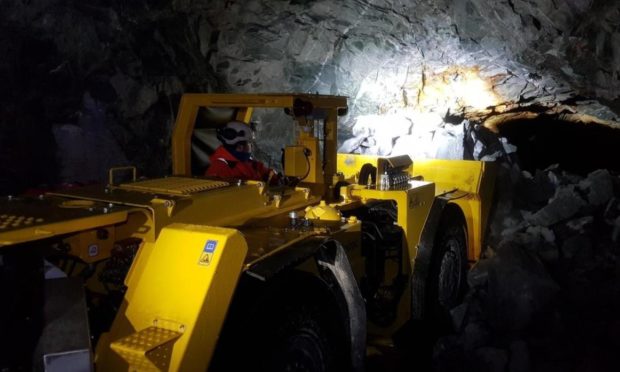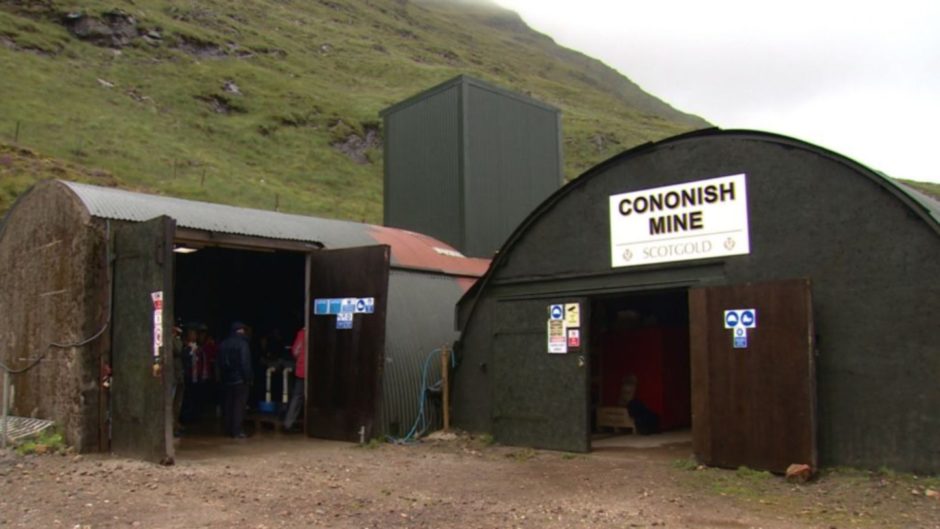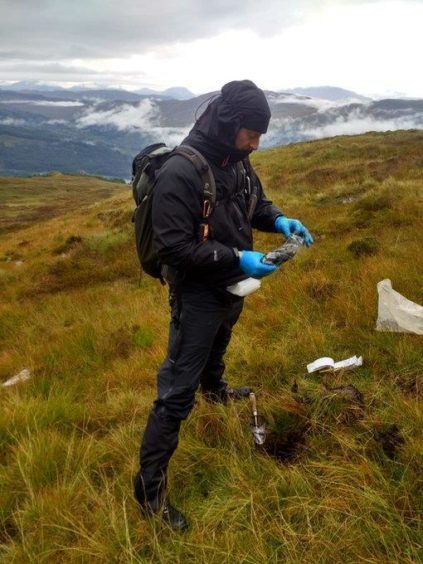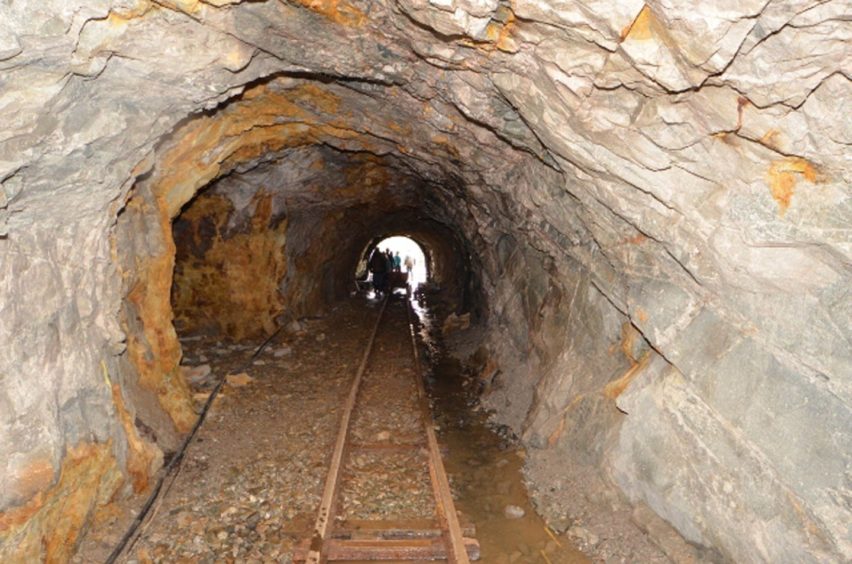Shares in Scotgold Resources jumped nearly 4.5% today (June 1) after the Scottish gold miner said it had achieved “near design rates” of production.
The company also said it was pleased with the quality of ore produced from the site at Cononish, in Argyll.
In an update to the market just over a month after it said it had resolved technical woes that had plagued early production from the mine, Scotgold said Cononish – near Tyndrum – was now producing both gold concentrate and “gravity separated” gold dore.
Dore is an alloy of precious metals containing a high percentage of gold and silver.
Scotgold, whose shares were each worth 58p at market close, said the first shipment of concentrate was made on May 11 in a “major milestone” for the company.
It added: “We shipped 25 tonnes of concentrate at an average of 182.4 grams (6.4oz) per tonne of gold, exceeding the target of 150g (5.3oz) per tonne. Modest amounts of gravity gold Dore were also produced and sent to refiners… for further treatment.”
Scotgold said it was encouraged by the mine and process plant performance, although production has been “intermittent” to date.
“On given days throughout April and May both the mine and process plant have been achieving near design rates of production,” the firm added.
Spring production alert sent shares tumbling
In late April, Scotgold’s value on the Alternative Investment Market plunged nearly 30% after it warned output in its first year of production from Cononish would be “materially” below previous guidance.
It also revealed it was investigating financing options, including short-term loans from the directors.
The initial “pour” of Scotland’s first commercially-produced gold from Cononish was achieved at the end of last November.
But Scotgold later admitted production at the start of 2021 was “negligible” due to “multiple materials handling issues”, while recruitment was impacted by the Christmas period and lockdown.
The company launched a review of the mine plan for Cononish at the start of April, and it concluded the ramp-up of production was likely to be slower than originally planned.
In today’s update, Scotgold said its current focus was to “further enhance safe production through consistency and stability of mine and process plant operations, in parallel with the opening of multiple faces of ore in the underground mine itself”.
Scotgold recently raised £1.5 million from a share placement to cushion the blow of slower-than-expected progress for its trouble-hit operation in Argyll.
A lag between production build-up and sales receipts for gold from the site has meant further working capital is required until the project becomes cash flow positive.
Chairman’s £500k on tap
Suffolk-based Bridge Barn – a company owned and controlled by Scotgold chairman Nathaniel le Roux – has agreed to provide debt funding of £500,000, if required.
Scotgold actually produced its first gold from the Cononish seam several years ago as part of processing trials at the site.
The gold was later sold for £4,557 per ounce, a more than three-fold premium on the average spot price of the day.
The mineral was in the form of “rounds”, each stamped with the Scottish gold mark of a stag’s head and bearing a unique serial number.
Delayed start-up
Commercial production was supposed to start in late 2019 but schedule delays relating to the management of excavated materials and drainage pushed the date back to May 2020.
That plan was then scuppered by Covid-19, with construction and development grinding to a halt on March 27 last year.
Scottish gold miner sends investors running for the hills
First Scottish gold goes on sale at Edinburgh auction
Here’s how you can find gold in Scotland. Yes, really
Following in the footsteps of a Sutherland gold-digger
Cononish has long been associated with gold despite commercial production starting only late last year.
In 1998, Fynegold Exploration, a subsidiary of Toronto-based Caledonia Mining Corporation obtained the necessary permissions and was looking to raise finance to mine around 25,000 ounces of the precious metal a year.
Caledonia had been formed by Sutherland-born gold-mining magnate Dennis MacLeod.
Fynegold’s project never went ahead as the price of gold failed to meet expectations, making the project unviable.
The Cononish mine, in the hill of Beinn-a-chuirn, was then mothballed.
It later went up for sale at offers of over £1.2 million as part of the 4,000-acre Cononish Estate.



